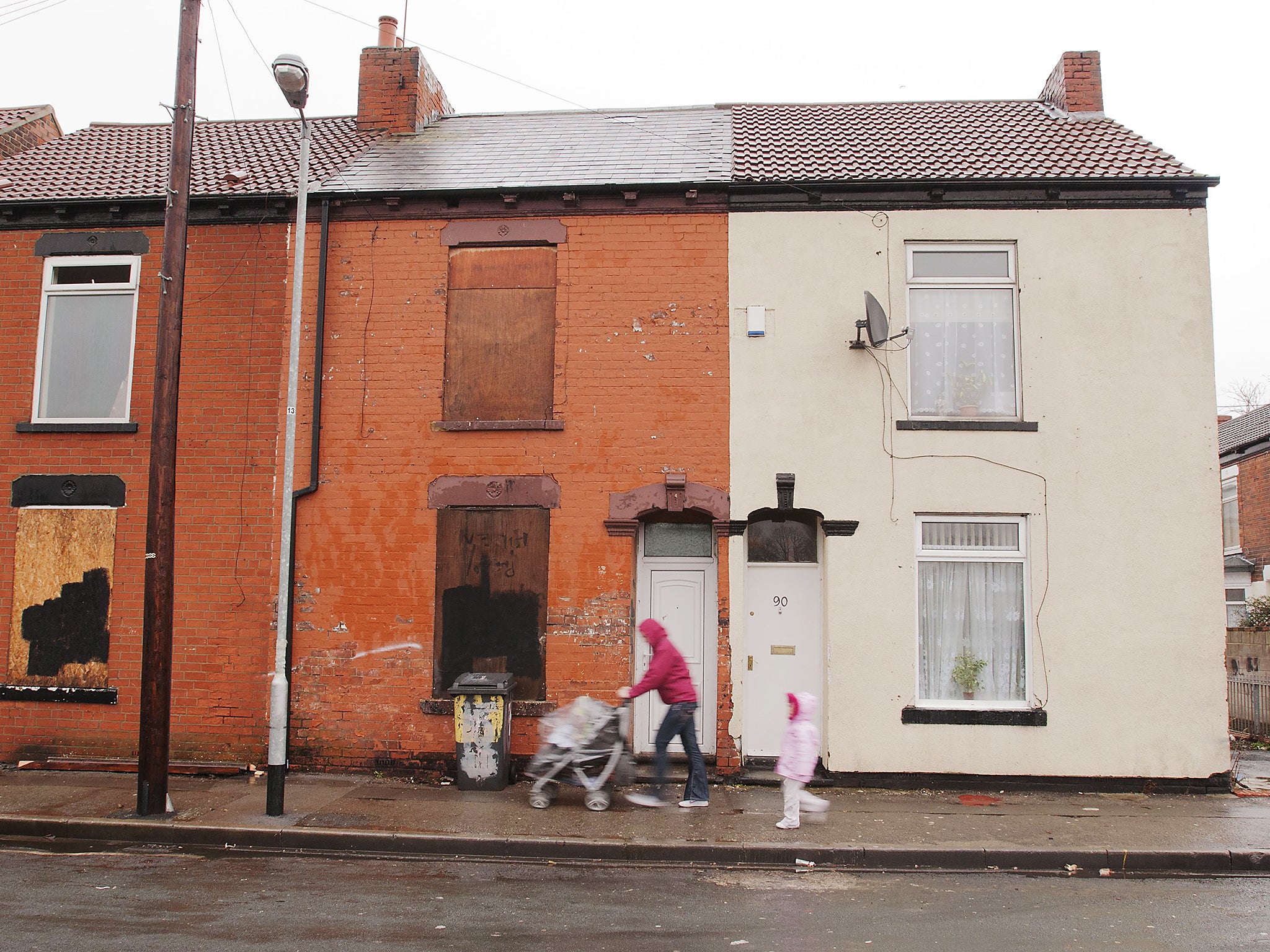Poorer tenants face choice between heat, eat or pay rent, report warns
Freeze on housing benefit leaving people stuck in 'desperate' situations, report states

Your support helps us to tell the story
From reproductive rights to climate change to Big Tech, The Independent is on the ground when the story is developing. Whether it's investigating the financials of Elon Musk's pro-Trump PAC or producing our latest documentary, 'The A Word', which shines a light on the American women fighting for reproductive rights, we know how important it is to parse out the facts from the messaging.
At such a critical moment in US history, we need reporters on the ground. Your donation allows us to keep sending journalists to speak to both sides of the story.
The Independent is trusted by Americans across the entire political spectrum. And unlike many other quality news outlets, we choose not to lock Americans out of our reporting and analysis with paywalls. We believe quality journalism should be available to everyone, paid for by those who can afford it.
Your support makes all the difference.Low-income tenants are having to choose between eating, putting on the heating and paying rent as a freeze in housing benefit means it is failing to cover even the cheapest rents, according to a new report.
More than 90 per cent of Local Housing Allowance rates across the UK now fail to cover the cheapest 30 per cent of homes in any given area, as they were originally designed to do, the research from the Chartered Institute of Housing (CIH) showed.
The housing benefit for private renters has seen its rates increase in line with local rents since April 2013 and they remain frozen until April 2020.
As a result, campaigners have claimed this has put people in "desperate" situations vulnerable to falling into homelessness.
Renters are facing gaps ranging from £25 a month on a single room in a shared home outside London, to more than £260 a month on one to four-bedroom homes in some areas of the capital, the report states.
With those gaps rising to £300 and £3,120 within 12 months, the CIH warned this made it increasingly likely that renters would be forced to choose between paying their rent or buying basic necessities like food and heating.
The organisation is now calling on the government to review the policy and end the freeze immediately.
Abandoning the freeze on Local Housing Allowance (LHA) for private renters was “essential” in order for low-income families to avoid homelessness, the report's authors wrote.
The CIH said the new research has now made it clear how far housing benefit for private renters had failed to keep pace with even the cheapest private rents.
“We fear this policy is putting thousands of private renters on low incomes at risk of poverty and homelessness,” said the organisation's chief executive, Terrie Alafat CBE. “We are calling on the government to conduct an immediate review and to look at ending the freeze on Local Housing Allowance.”
It comes after The Independent reported in November that more than 30 homeless charities, faith leaders and MPs had issued a cross-sector letter to Chancellor Philip Hammond, calling on him to lift the cap on housing benefits or see a million households facing homelessness within the next two years.
Charity Crisis estimates there are currently an estimated 236,000 people across Britain experiencing the worst forms of homelessness, like sleeping on the streets, living in unsuitable hostels and sofa-surfing.
“This report highlights just how much housing benefits for private renters are falling short of the levels needed, leaving many homeless people stuck in a desperate situation and putting yet more people at risk of homelessness," said Matt Downie, its director of policy and external affairs.
“In many of these cases, people simply can’t find a home because there isn’t enough social housing and housing benefits are too low to cover private rents. The government must urgently reform housing benefits for private renters, so they not only match the true cost of renting but also keep pace with future rent changes.”
CIH said the policy was hitting single people aged under 25 particularly hard, because they are only entitled to LHA to cover the rent on a bedroom in a shared home, while the levels of other benefits they may be entitled to, such as Jobseeker’s Allowance, are also much lower.
The government introduced targeted affordability funding in 2014 to bridge the biggest gaps, but the report found that its impact had been negligible, covering only a handful of the shortfalls completely.
CIH said their LHA rates should be restored to the 30th percentile rent with immediate effect.
Join our commenting forum
Join thought-provoking conversations, follow other Independent readers and see their replies
Comments